It becomes obvious when you consider that the compiler will generate a default constructor, a default copy constructor, and a default copy assignment operator for you, in case your struct/class does not contain reference members. Then, think of that the standard allows you to call member methods on temporaries, that is, you can call non-const members on non-const temporaries.
See this example:
struct Foo {};
Foo foo () {
return Foo();
}
struct Bar {
private:
Bar& operator = (Bar const &); // forbid
};
Bar bar () {
return Bar();
}
int main () {
foo() = Foo(); // okay, called operator=() on non-const temporarie
bar() = Bar(); // error, Bar::operator= is private
}
If you write
struct Foo {};
const Foo foo () { // return a const value
return Foo();
}
int main () {
foo() = Foo(); // error
}
i.e. if you let function foo() return a const temporary, then a compile error occurs.
To make the example complete, here is how to call a member of a const temporarie:
struct Foo {
int bar () const { return 0xFEED; }
int frob () { return 0xFEED; }
};
const Foo foo () {
return Foo();
}
int main () {
foo().bar(); // okay, called const member method
foo().frob(); // error, called non-const member of const temporary
}
You could define the lifetime of a temporary to be within the current expression. And then that's why you can also modify member variables; if you couldn't, than the possibility of being able to call non-const member methods would be led ad absurdum.
edit: And here are the required citations:
12.2 Temporary objects:
- 3) [...] Temporary objects are destroyed as the last step in evaluating the full-expression (1.9) that (lexically) contains the point where they were created. [...]
and then (or better, before)
3.10 Lvalues and rvalues:
- 10) An lvalue for an object is necessary in order to modify the object except that an rvalue of class type can also be used to modify its referent under certain circumstances. [Example: a member function called for an object (9.3) can modify the object. ]
And an example use: http://en.wikibooks.org/wiki/More_C%2B%2B_Idioms/Named_Parameter
